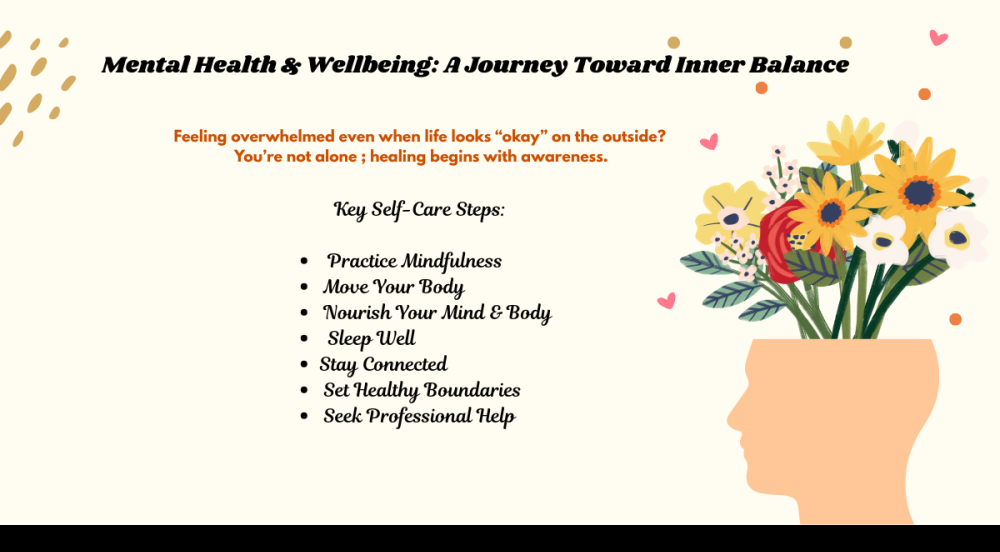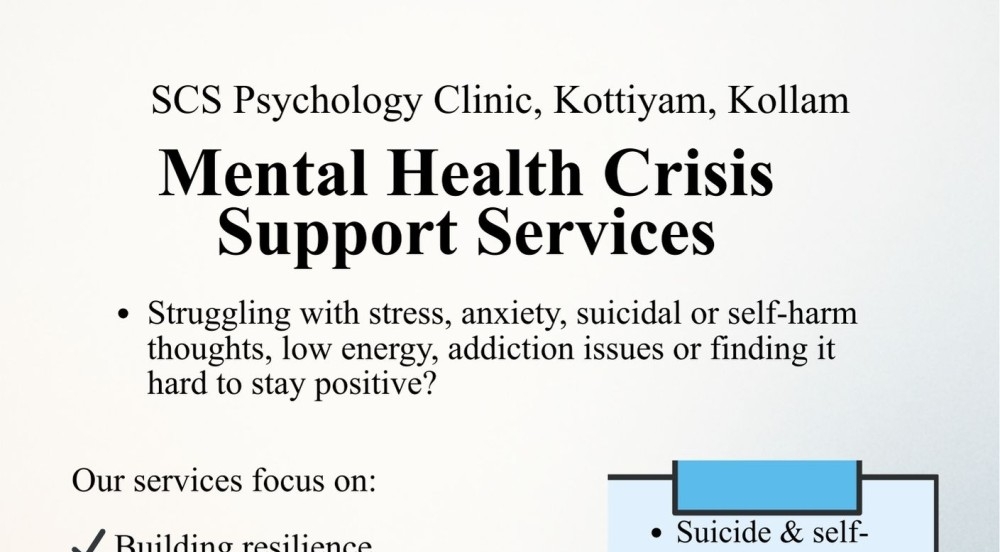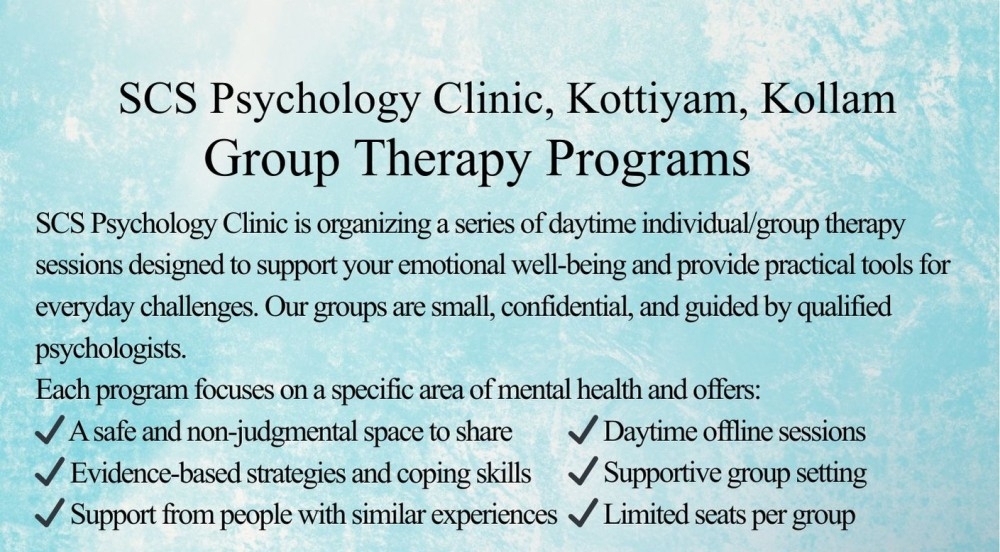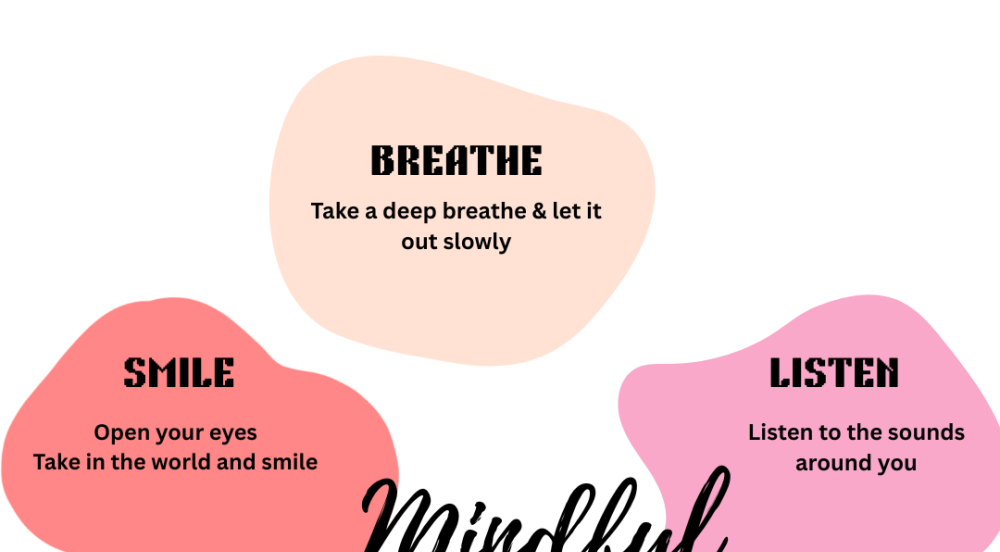
- 29 Sep, 2025
Mental Health and Wellbeing: A Journey Toward Inner Balance
Have you ever found yourself feeling overwhelmed by life’s demands, even when everything seems “fine” on the outside? You’re not alone.
In today’s world of constant notifications, busy schedules, and unspoken pressure to always be “okay,” more and more people are silently struggling with their mental health. But here’s the good news: talking about it is the first step toward healing, and you're already doing that by being here.
What Is Mental Health, and Why Should We Talk About It?
When someone says "mental health," what comes to mind for you? Do you think of mental illness, therapy, or just your everyday thoughts and feelings?
Mental health is about how we think, feel, and behave. It influences how we handle stress, relate to others, and make decisions.Good mental health allows individuals to cope with the normal stresses of life, work productively, and contribute to their communities. However, mental health is not static; it fluctuates based on life circumstances, biological factors, and environmental influences. Conditions such as anxiety disorders, depression, bipolar disorder, and schizophrenia are examples of mental illnesses that can significantly impact one’s quality of life. These conditions are not character flaws or signs of weakness; they are medical issues that require understanding, support, and treatment.
What Does Wellbeing Really Mean?
Here’s a question: Are you just getting through the day… Or are you actually enjoying your life?
Well-being is more than just “feeling okay.” It’s a full-body, whole-life experience—your physical health, emotional balance, meaningful relationships, and your sense of purpose all play a part.
Ask yourself:
-
Do I feel connected to the people around me?
-
Do I have activities that bring me joy?
-
Am I taking care of both my body and mind?
When well-being suffers, mental health often follows and vice versa. That’s why nurturing both is essential.
What’s Making It So Hard Today?
Let’s be honest: life today isn’t exactly calm and quiet.
Have you ever felt drained by social media? Or anxious about the future? You’re definitely not alone. Between the pressure to “have it all together,” nonstop notifications, global uncertainty, and personal responsibilities, it’s no wonder so many of us feel exhausted.
And here’s a tough question:When was the last time you opened up to someone about how you’re really feeling?
Sadly, stigma still keeps a lot of people from speaking out. We worry we’ll be judged or misunderstood, so we stay silent. But silence only feeds the struggle.
So, what can we do about it?
Ready for some practical steps? Here are a few evidence-based strategies to help you start (or continue) your journey toward inner balance.
Ask yourself as you read: Am I already doing this? If not, could I try?
1. Practice Mindfulness and Meditation
Even 5 minutes of quiet breathing or guided meditation can help reduce stress, increase focus, and calm your mind. It’s about tuning into the present moment, not fixing everything at once.
2. Move Your Body
Regular exercise doesn’t just help your physical health; it boosts your mood, improves sleep, and increases self-esteem. Find what you enjoy: walking, dancing, yoga, or even just stretching.
3. Nourish Yourself
Food affects your brain. A balanced diet with fruits, veggies, whole grains, and lean proteins can support your energy and emotional stability. Don’t forget those omega-3s; they’re linked to lower depression levels!
4. Protect Your Sleep
Sleep isn’t a luxury; it’s essential. Try creating a consistent bedtime routine and limiting screen time before bed. Better sleep = better focus, better mood, better everything.
5. Stay Connected
Who can you talk to when things feel heavy? A friend, a sibling, or a co-worker? Real connection reduces isolation and reminds us that we’re not alone.
6. Set Boundaries
Do you say yes to everything and end up burnt out? Learn to protect your time and energy. Boundaries aren’t selfish; they’re necessary for your mental well-being.
7. Seek Professional Help
Talking to a therapist or counselor isn’t just for crises. It’s a space to grow, heal, and understand yourself better. Therapy can be life-changing, and there’s no shame in reaching out.
Let’s Keep This Conversation Going
Taking care of your mental health and well-being isn’t a one-time event it’s a lifelong journey. And every step you take, no matter how small, is progress.
Let’s normalize this conversation. Let’s support one another. And let’s stop pretending we’re “fine” when we’re not. Next week, we’ll continue this conversation with More Strategies for Mental Wellness.




